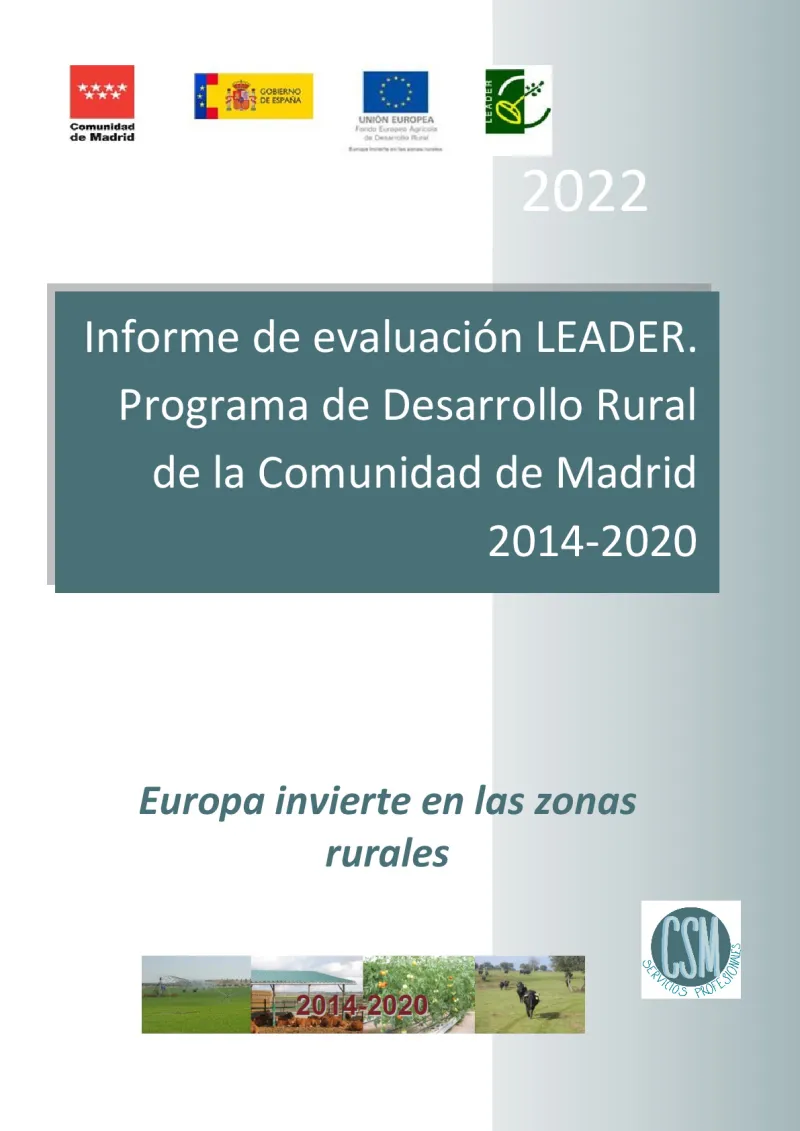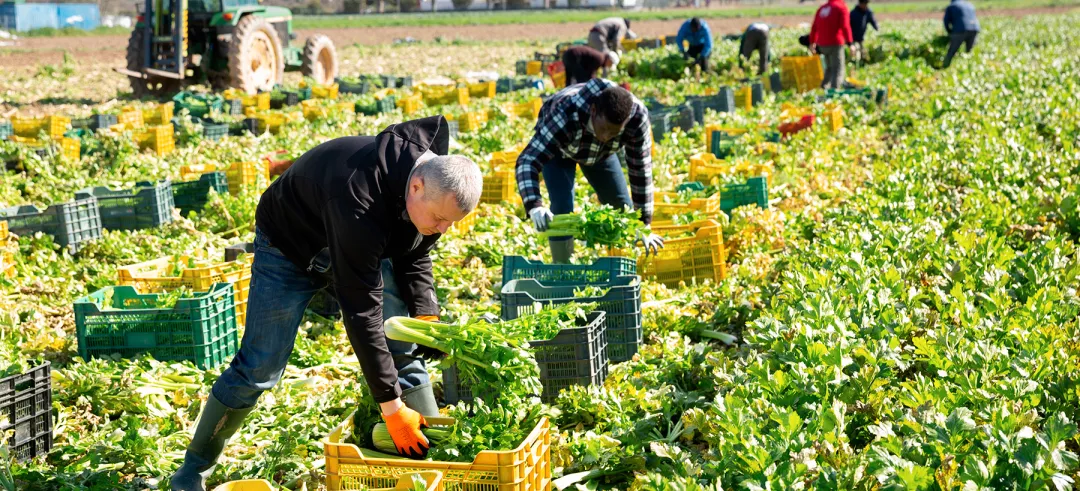Evaluation report on LEADER in the Community of Madrid
- Evaluation
- LEADER
- Jobs, Growth and Equality in Rural Areas
- Sustainability
- Evaluation
- Cross-cutting Impacts
This study focuses on LEADER and recommendations that could improve the process of programming and selecting participatory Local Development Strategies in the 2023-2027 CAP programming period.
- Spain
- 2023-2027
- Cross-cutting impacts


This evaluation, commissioned by the RDP Managing Authority and published in 2022, focuses on LEADER and responds to the actions foreseen in the evaluation plan of the Community of Madrid's RDP. It also aims to be useful in finding recommendations that could improve the process of programming and selecting participatory Local Development Strategies (LDS) in the 2023-2027 programming period by applying lessons learnt in the 2014-2020 period.
A participatory methodology was proposed for developing this evaluation exercise, working with three Local Action Groups (LAGs) of the Community of Madrid. To this end, a series of meetings were held with the Management Authority, Measure Management Unit, and representatives of the LAGs, during which the content of the evaluation report, its structure and possible information collection tools were discussed.
Primary and secondary sources have been used. Through primary sources, information from the actors involved in the programming, management, monitoring and evaluation of the intervention has been obtained, specifically through interviews and questionnaires. The main secondary sources used were the 2014-2020 RDP of the Community of Madrid, the LDS of the three LAGs from the Community of Madrid, the 'Guidelines: Evaluation of LEADER/CLLD' and other reports. For the evaluation, different questions were identified and grouped differently in relation to intervention logic, participation, criteria for the selection of operations, implementation (rules, procedures, arrangements, communication between Managing Authority, Management Unit, LAG), monitoring and evaluation, animation or support for capacity building, LEADER added value, results and lessons learned.
The study highlighted different findings, but the most relevant are reported below.
The intervention logic is satisfactory, and the objectives and the types of operations established in the LDS are related to the different SWOT matrices, covering the needs detected.
The development of the LDS was carried out in a participatory manner through workshops, sectoral roundtables and a public consultation. An improvement for the future could be the preparation by the Managing Authority of a document with instructions to facilitate the preparation of the LDS, which leads to better homogenisation.
For the allocation of EAFRD funds to each LAG, objective criteria, such as population and territory covered, and subjective criteria, such as the quality of the LDS, were taken into account.
The Management Unit has established generic criteria for operation selection, and the LAGs have defined those they have considered most suitable for their type of operations.
There have been two types of communication among the Managing Authority, the Management Unit and the LAGs: formal communication, with the holding of regular monitoring meetings and the use of the electronic headquarters of the Community of Madrid, and informal communication, by means of consultations via email and/or telephone calls. For greater simplification, it is recommended that the Management Unit draw up basic documents.
Regarding the monitoring and evaluation of the LDS, there is a certain heterogeneity among the LAGs of the Community of Madrid, both in planning and evaluating their LDS and carrying out these evaluations. In the case of two of the three LAGs in Madrid, the evaluation identifies a need to simplify the LDS for the next period, by establishing fewer types of operations to be implemented. The LAGs need more training in monitoring and evaluation. In order to simplify and homogenise the monitoring system, a common set of indicators is needed for all LAGs, with the elaboration of a manual with their calculation methodology.
Participatory process for the elaboration of the LDS is considered adequate, as well as the animation actions. Nevertheless, no specific progress can be observed in the 'LEADER specificities' due to a lack of social fabric and collaborative culture, which has not been sufficiently encouraged or promoted in the territories.
LEADER support has been articulated with other support in a complementary manner, enabling local needs to be met in a flexible manner, especially in the case of small municipalities.
The main results of the LEADER measure are 144 projects realised, 86 jobs created and 93 723 inhabitants benefited.
With a view to the future, it is recommended to hold specific workshops to rethink the measures that have not worked and generate spaces and knowledge meetings between the initiatives financed by LEADER. This will promote collaboration and networking between the region's actors and the support beneficiaries.
Author(s)
CSM